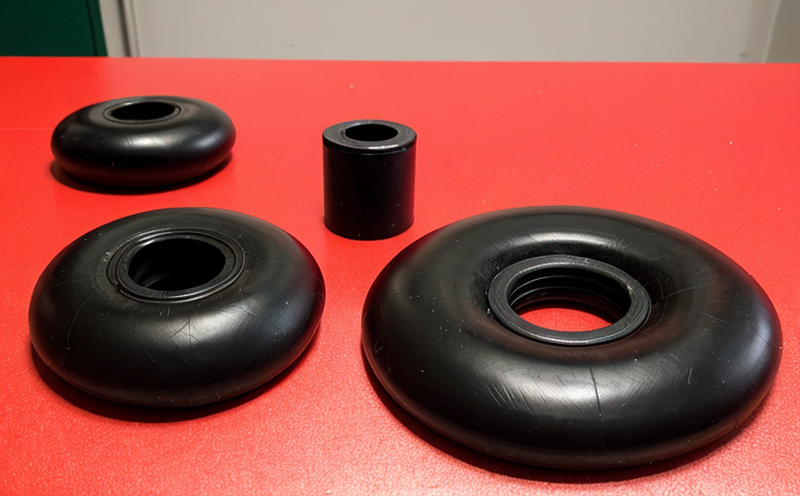Rubber & Elastomers Testing
Rubber and elastomers are critical materials in various sectors including automotive, aerospace, medical devices, footwear, and construction. Their unique properties—elasticity, resilience, and durability—make them indispensable for a wide range of applications. This service page provides an overview of the comprehensive testing methods we offer to ensure that rubber and elastomer products meet international standards.
At Eurolab, our expertise in polymer and plastics testing translates into precise and reliable results for rubber and elastomers. We use advanced instrumentation to assess physical properties such as tensile strength, elongation at break, modulus, hardness, tear resistance, and compression set. Our state-of-the-art facilities comply with international standards including ISO 3508, ASTM D412, EN 16907, and IEC 60297.
For quality managers and compliance officers, our testing ensures that products are safe for end-users. Our services help in identifying material properties that can impact product performance over time. For R&D engineers, we provide insights into the behavior of new formulations under various conditions. This knowledge is invaluable for improving product design and ensuring regulatory compliance.
The process begins with receiving samples from customers which are then prepared according to specific protocols. Tensile tests are conducted on specimens cut to standard dimensions using an electronic testing machine. Hardness measurements may be made using Shore hardness testers. For compression set, specimens are conditioned at elevated temperatures for extended periods.
- Customer Impact and Satisfaction:
- We ensure that our clients receive accurate test results that contribute to product quality and reliability.
- Our testing supports the development of new products while ensuring they meet all required standards.
- Compliance with international standards adds value by meeting regulatory requirements globally.
The importance of rubber and elastomers cannot be overstated. Their versatility allows them to perform in harsh environments, making them essential components in many industries. By providing accurate testing data, Eurolab ensures that these materials maintain their integrity throughout their lifecycle.
- Environmental and Sustainability Contributions:
- Elastic materials contribute significantly to sustainable development through their energy efficiency properties.
- The use of rubber and elastomers in tire manufacturing reduces fuel consumption by improving vehicle aerodynamics and reducing rolling resistance.
- Recycled rubber can be used in new products, reducing the demand for virgin raw materials and lowering carbon footprints.
Eurolab Advantages
We pride ourselves on offering a range of advantages that set us apart from our competitors. Our team comprises highly skilled professionals with extensive experience in polymer and plastics testing.
- Expertise: Our staff are experts in rubber and elastomers, ensuring accurate results for your testing needs.
- Technology: We use advanced equipment that adheres to the latest international standards.
- Compliance: All our tests comply with relevant international regulations and guidelines.
- Confidentiality: Your data remains secure, and we maintain strict confidentiality regarding all client information.
Customer Impact and Satisfaction
Our clients benefit from the precision and reliability of our testing services. By ensuring that rubber and elastomer products meet all international standards, we contribute to their overall product quality and safety.
- Product Quality: Accurate test results help in identifying material properties that impact product performance over time.
- Regulatory Compliance: Ensuring compliance with international standards adds value by meeting global regulatory requirements.
- Innovation: Our testing supports the development of new products while ensuring they meet all required standards.
Environmental and Sustainability Contributions
The use of rubber and elastomers in various applications contributes significantly to sustainable development through their energy efficiency properties. For instance, the use of these materials in tire manufacturing reduces fuel consumption by improving vehicle aerodynamics and reducing rolling resistance.
- Energy Efficiency: Rubber and elastomers contribute to better fuel economy due to lower rolling resistance.
- Recycling: Recycled rubber can be used in new products, reducing the demand for virgin raw materials and lowering carbon footprints.





